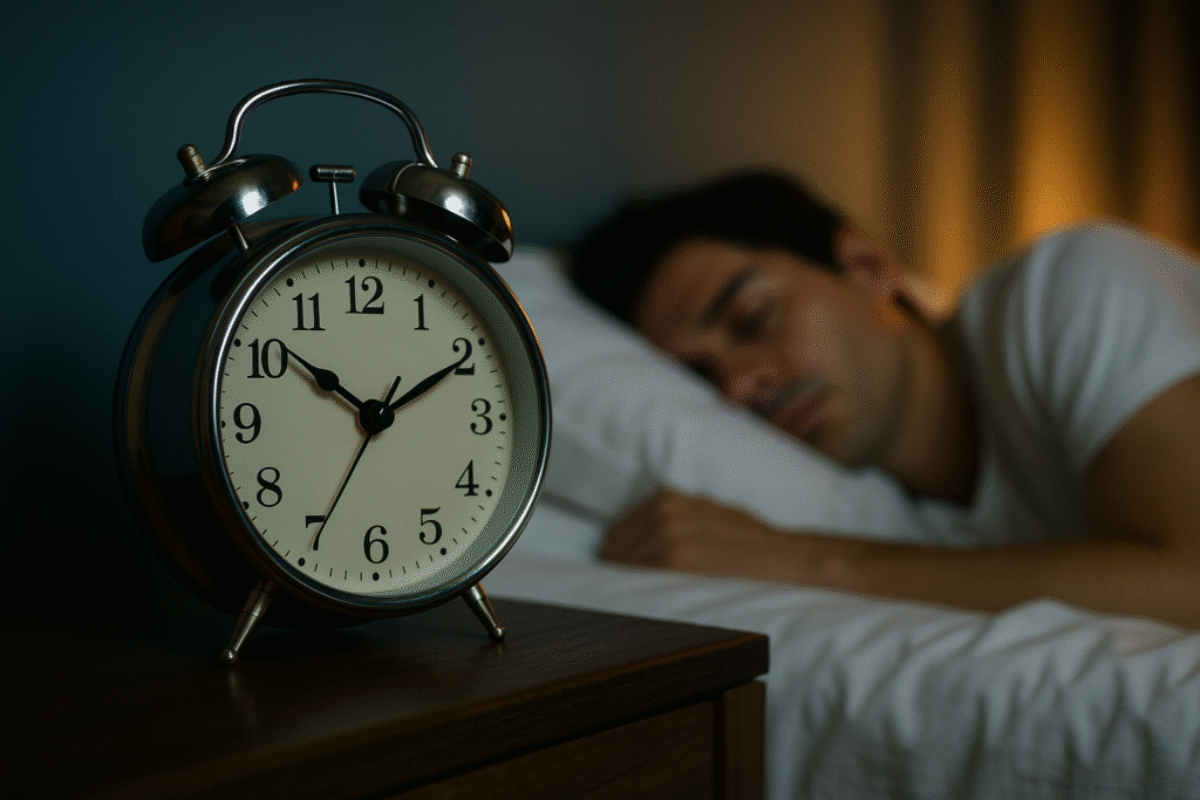Master Growth Hormone Release With Perfect Sleep Timing
You track your sleep duration. You optimize your bedroom temperature. You even avoid screens before bed. But did you know that when you sleep could be sabotaging one of your body’s most vital recovery processes? Groundbreaking research from UCLA neuroscientist Dr. Gina Poe reveals a startling truth: Missing your regular bedtime by just 2 hours can completely block growth hormone release – even if you sleep 8 hours. This isn’t about sleep quantity. It’s about biological timing that affects everything from muscle repair to memory consolidation.
By the end of this article, you’ll understand:
-
The exact sleep phase when growth hormone surges occur
-
Why sleeping later doesn’t “reschedule” this critical window
-
3 actionable steps to harness your body’s nightly repair cycle
What Is Growth Hormone Release and Why Does It Matter?
Growth hormone (GH) isn’t just for bodybuilders or growing teens. This powerhouse peptide:
-
Repairs tissues (muscle, bone, organs)
-
Boosts metabolism and fat burning
-
Strengthens immune function
-
Enhances brain plasticity for learning
While GH releases occur throughout the day, the largest pulse happens during your first deep sleep phase – typically within 90 minutes of falling asleep. As Dr. Poe explains: “If you miss that first deep slow-wave sleep period, you miss that big bolus of growth hormone release. Endocrinologists confirm big boluses do different things than small amounts released gradually.”
The Science of Sleep-Timed Hormone Release
Your body runs on circadian rhythms – 24-hour biological cycles governing hormone production. During the Huberman Lab Podcast, Dr. Poe revealed why sleep timing is non-negotiable for GH optimization:
“Your cells are primed to respond to growth hormone at specific times. If you sleep late, GH release occurs when your circadian clock has moved to the next phase. It’s like showing up to a party after everyone left.”
Key findings from her research:
-
The 90-Minute Window: The first slow-wave sleep (Stage N3) triggers a GH surge. Delay sleep by 2+ hours? You skip this pulse.
-
The Bilge Pump Effect: Deep sleep waves physically “wash” metabolic debris from your brain via synchronized neuron firing – priming you for next-day cognition.
-
Locus Coeruleus Control: This norepinephrine-producing brain region must shut off during REM sleep to allow memory processing and emotional “erasure” (NIH study on sleep neurophysiology).
3 Actionable Steps to Optimize Growth Hormone Release
Tip #1: Lock In Your Bedtime (+/- 30 Minutes)
Your bedtime consistency is the #1 predictor of GH release. Dr. Poe’s protocol:
-
Calculate your ideal sleep window (e.g., 10 PM – 6 AM)
-
Use phone reminders to start winding down 90 minutes prior
-
Critical: Even weekends should vary by ≤30 minutes
“One of the best markers of neurological health as we age is consistent bedtimes.” – Dr. Gina Poe
Tip #2: Avoid These 3 Growth Hormone Blockers
Certain substances sabotage early deep sleep:
-
Alcohol: Suppresses REM and spindle sleep (critical for GH-triggered protein synthesis)
-
Late Caffeine: Halts adenosine clearance, delaying slow-wave onset
-
High-Evening Carbs: Blood sugar spikes fragment early sleep cycles
Instead, try our natural sleep-enhancing stack 90 minutes pre-bed.
Tip #3: Master the Pre-Sleep “Cool Down”
Calming your locus coeruleus before bed ensures faster entry into GH-releasing deep sleep:
-
NSDR Protocol: 10-min non-sleep deep rest (proven in Scandinavian studies)
-
Body Scan: Tense/release muscles from toes to scalp
-
Temperature Drop: Aim for 65°F (18°C) – critical for initiating slow waves
Common Growth Hormone Release Questions
Can You “Catch Up” on Missed GH Release?
No. As Dr. Poe confirms: *”If you normally sleep at 10 PM but sleep at midnight, you miss the GH surge. Sleeping later doesn’t reschedule it – your cells’ circadian readiness has passed.”*
Does Oversleeping Increase Growth Hormone?
Generally no. Adults sleeping >9 hours nightly may indicate inefficient sleep or health issues (e.g., sleep apnea). Exceptions: teens in development phases require extended sleep.
How Does Alcohol Affect Growth Hormone?
Alcohol:
-
Delays entry into slow-wave sleep
-
Reduces spindle density (critical for memory consolidation)
-
Fragments sleep architecture
Avoid within 4-6 hours of bedtime.
Your Biological Night Shift Awaits
Growth hormone release isn’t just about how long you sleep—it’s about when you sleep. By anchoring your bedtime within a 30-minute window, avoiding evening alcohol, and cooling your nervous system pre-sleep, you harness what Dr. Poe calls “your body’s nightly repair shift.” Start tonight: pick one tip above to implement. Your muscles, metabolism, and mind will thank you.

